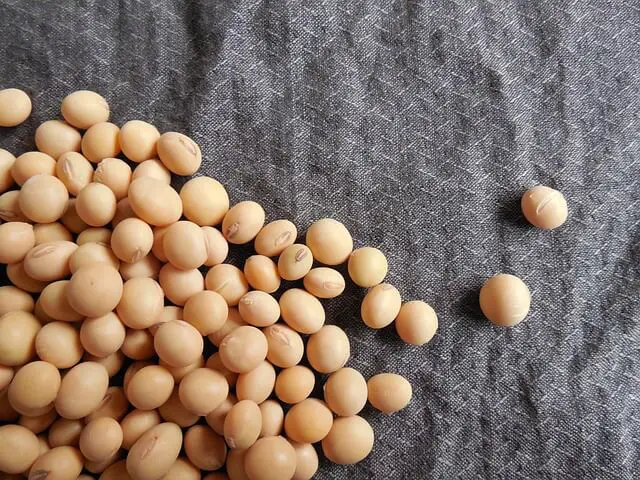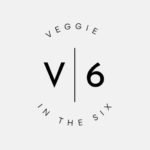Your cart is currently empty!

The second most frequent question I get asked when people find out I’m vegan: is soy bad for you? The first question, of course, is: where do you get your protein?
The short answer is that, no, soy is not bad for you. It can actually be quite good and the reason this question even gets asked is not an accident. So you can’t be blamed for being confused about eating soy.
What is Soy?
Soy is a type of plant that is native to East Asia and is widely cultivated for its edible beans, which are high in protein and other nutrients.
Soybeans are the primary source of soy products, including soy milk, tofu, tempeh, and soy protein isolates, which are used in a variety of foods, including protein bars and shakes.
Are you like a lot of people out there asking yourself: is soy healthy or harmful to your health? To start, lets look at the nutrients that it contains.
Nutrients found in Soy
Soy is a good source of several important nutrients, including protein, fiber, and various vitamins and minerals. A 1/2 cup (78 grams) serving of cooked soybeans contains around:
- 14 grams of protein
- 6 grams of fibre
- And is a good source of iron, potassium, and magnesium
Soybeans are also rich in isoflavones, which are plant compounds that have been shown to have a variety of potential health benefits.
Benefits of Soy
Are you thinking about going vegan but nervous about where you’ll get protein since you’ve heard soy is bad for you? Well the truth is quite the opposite and there are many benefits from consuming soy products. One of the main potential health benefits of soy is its ability to lower cholesterol levels.
Some research suggests that consuming soy protein may help reduce low-density lipoprotein (LDL) cholesterol, also known as “bad” cholesterol, which can build up in the walls of the arteries and increase the risk of heart disease. For example, a review of 38 randomized controlled trials found that consuming soy protein reduced LDL cholesterol by an average of 3.9 mg/dL.1

Soy may also have benefits for bone health.
Some research suggests that consuming soy or soy products may help reduce the risk of osteoporosis, a condition in which the bones become weak and brittle.
For example, a review of 15 studies found that consuming soy or soy products was associated with an increase in bone density and a reduction in the risk of osteoporosis in postmenopausal women.2
There is also some evidence to suggest that consuming soy may have a protective effect against certain types of cancer.
For example, a review of 31 studies found that consuming soy or soy products was associated with a reduced risk of breast cancer in Asian women.Other research has also suggested that consuming soy may be associated with a reduced risk of prostate and colorectal cancer.34
Despite the potential health benefits of soy, some people may have individual sensitivities or allergies to soy or soy products. Symptoms of a soy allergy may include skin rash, hives, nausea, vomiting, and difficulty breathing. If you experience any of these symptoms after consuming soy or soy products, it is important to seek medical attention.
Another concern that some people have about soy is its potential effects on estrogen levels.
Estrogen is a hormone that plays a role in various bodily functions, including the menstrual cycle and the development of female sexual characteristics. Some research has suggested that the isoflavones in soy may have estrogen-like effects in the body, leading some people to worry about their potential impact on hormone levels and reproductive health.
However, it is important to note that the majority of research suggests that the estrogen-like effects of soy are weak and do not pose a significant risk to human health. A review of 38 studies found that consuming soy or soy products did not significantly affect estrogen levels in women.5
Other research has also found that consuming soy or soy products was not associated with an increased risk of breast cancer or other negative effects on reproductive health in women.
I personally find it weird when people who eat meat and dairy are concerned about soy because of the fears of increased estrogen.
They are consuming milk from a mammal that is intended for their calf. Mammals have hormones and there are lots of them in their milk so I would be more worried about those hormones no? And if that isn’t enough and soy is really to be worried about…..what are cows fed?!
Why Does Soy Have Such a Bad Rap?
Despite its numerous health benefits, soy has faced its share of controversies and myths, often painting it in a negative light.
One prominent factor contributing to the negative reputation of soy can be traced back to ad campaigns and promotional strategies employed by competitors, notably the dairy industry.

The dairy sector, viewing soy products as a growing competitor, launched campaigns to cast doubt on the health benefits of soy, emphasizing purported risks associated with its consumption.
A well-documented example of such strategies includes campaigns emphasizing the presence of phytoestrogens in soy and insinuating potential hormonal imbalances, despite scientific studies refuting significant risk. Once a negative stigma is attached to a food product, it becomes remarkably challenging to dispel these myths and misconceptions, as they tend to linger in public perception.
The power of consistent messaging and repetition can embed these ideas deeply within societal beliefs, leading to longstanding skepticism. Furthermore, the advent of social media and the internet has only exacerbated the spread of misinformation, making it increasingly vital for consumers to seek out credible sources and evidence-based information to make informed dietary choices.
Efforts from health professionals, nutritionists, and researchers are ongoing to correct these misconceptions and present a balanced view of soy and its place in a healthy diet.
The Debate About Soy: The Truth
To wrap-up, soy is a good source of protein, fibre, and other nutrients. It may can have a variety of potential health benefits, including lowering cholesterol levels, improving bone health, and reducing the risk of certain types of cancer.
However, it is important to note that too much of anything can be harmful (even water) so consume soy in moderation as part of a varied diet, and to be aware of any individual sensitivities or allergies to soy or soy products. It takes a lot of soy to get into the danger area (if you don’t have allergies of course) so you don’t have to worry too much unless you are eating pounds of it everyday.
While some people may be concerned about the potential estrogen-like effects of soy I hope that I’ve shown you that this is a myth and you don’t need to be so worried.
For more on the topic also check out this article from Harvard.
* This article is not a substitute for professional medical advice, diagnosis, or treatment, and that readers should always seek the advice of their physician or other qualified health providers with any questions they may have regarding a medical condition.
- Sacks FM, Lichtenstein A, Van Horn L, Harris W, Kris-Etherton P, Winston M. Soy protein, isoflavones, and cardiovascular health: an American Heart Association Science Advisory for professionals from the Nutrition Committee. Circulation. 2006;113(7):1034-44. ↩︎
- Ma DF, Qin LQ, Wang PY, Katoh R. Soy isoflavone intake inhibits bone resorption and stimulates bone formation in menopausal women: meta-analysis of randomized controlled trials. Eur J Clin Nutr. 2008;62(2):155-61. ↩︎
- Trock BJ, Hilakivi-Clarke L, Clarke R. Meta-analysis of soy intake and breast cancer risk. J Natl Cancer Inst. 2006;98(7):459-71. ↩︎
- Yan L, Spitznagel EL. Soy consumption and prostate cancer risk in men: a revisit of a meta-analysis. Am J Clin Nutr. 2009;89(4):1155-63. ↩︎
- Hooper L, Ryder JJ, Kurzer MS, et al. Effects of soy protein and isoflavones on circulating hormone concentrations in pre- and post-menopausal women: a systematic review and meta-analysis. Hum Reprod Update. 2009;15(4):423-40. ↩︎

Leave a Reply